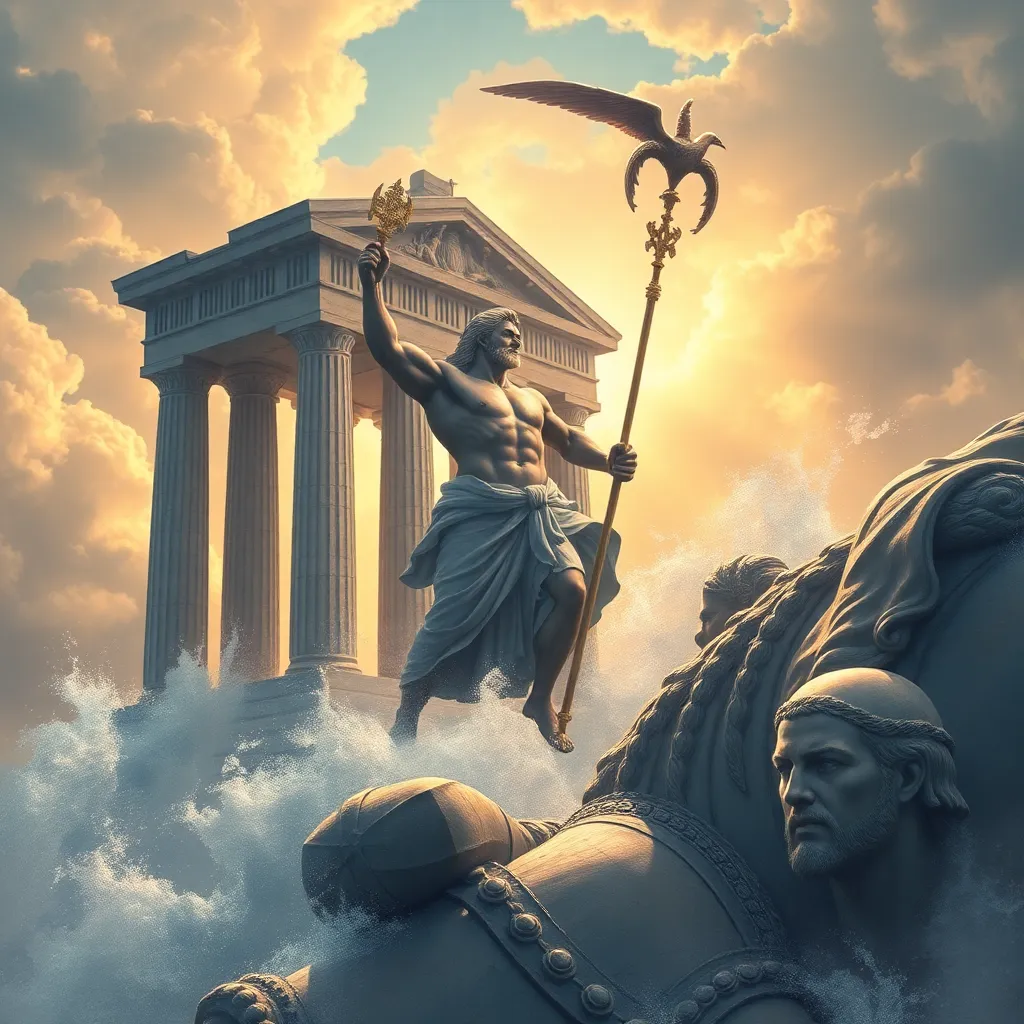The Trials of Theseus: Navigating Challenges and Triumphs
I. Introduction
The myth of Theseus is one of the most celebrated tales in Greek mythology, embodying the spirit of heroism, adventure, and moral complexity. Theseus, a prince of Athens, is often regarded as a cultural hero, representing the ideals of bravery and wisdom. His journeys are filled with perilous challenges, each contributing to his legacy as a symbol of resilience and determination.
This article aims to explore the trials and tribulations faced by Theseus throughout his life, highlighting the significance of his adventures and the lessons they impart.
II. The Birth and Early Life of Theseus
Theseus was born to Aegeus, the king of Athens, and Aethra, a princess of Troezen. His origins are steeped in mystery and divine intervention, as Aegeus consulted the Oracle of Delphi before fathering Theseus. Aegeus left behind a sword and a pair of sandals under a heavy rock for his son to claim when he was strong enough, signifying his royal lineage.
Theseus’s childhood was filled with adventures. His journey to Athens was marked by encounters with various bandits and mythical creatures, establishing his reputation as a formidable hero. As he traveled, he demonstrated his strength and intelligence, overcoming obstacles that would shape his identity.
Ultimately, Theseus’s early life set the stage for his destiny as a hero. He embraced his lineage and the challenges ahead, preparing himself for the trials that awaited him in Athens.
III. The Journey to Athens: Overcoming Initial Challenges
As Theseus set out for Athens, he faced numerous challenges that tested his mettle. Among these trials were:
- Defeating the bandit Periphetes, known as the Club-Bearer.
- Outsmarting Sinis, the Pine Bender.
- Slaying the monstrous sow of Crommyon.
Each encounter highlighted Theseus’s bravery and cleverness. He learned to rely not only on brute strength but also on wit and strategy, which were crucial for his development as a hero. These initial trials forged his character, instilling a sense of justice and purpose within him.
IV. The Labyrinth and the Minotaur: The Ultimate Challenge
One of the most iconic episodes in Theseus’s life is his confrontation with the Minotaur, a creature born from the union of Pasiphaë and a majestic bull. The Minotaur was confined within the Labyrinth, an intricate maze designed by Daedalus on the island of Crete.
Theseus volunteered to enter the Labyrinth, determined to confront the beast and put an end to the sacrifices made by Athens to appease King Minos. With the help of Ariadne, Minos’s daughter, Theseus was given a ball of thread to navigate the maze. His resolve and strategic thinking led him to victory:
- He tied one end of the thread at the entrance.
- After defeating the Minotaur, he followed the thread back to escape.
This triumphant moment not only showcased Theseus’s bravery but also the significance of guidance and support from others, as exemplified by Ariadne’s pivotal role in his success.
V. The Trials of Leadership: The Return to Athens
Upon returning to Athens, Theseus faced the political implications of his victory. He was not just a hero; he was now a leader, tasked with governing a city. The challenges of leadership became apparent:
- Addressing the fears and expectations of the Athenian people.
- Managing the political dynamics and rivalries that emerged in his absence.
- Building alliances with neighboring regions.
Theseus’s experiences in the Labyrinth and his leadership trials taught him the importance of diplomacy and collaboration. His ability to navigate these challenges solidified his reputation as a wise ruler and a beloved hero.
VI. The Role of Friendship and Betrayal
The friendships Theseus formed were instrumental in his journey. One of the most notable was his bond with Pirithous, a fellow hero. Their camaraderie exemplified the strength found in friendship:
- Together, they faced numerous challenges, including the abduction of Persephone.
- Their mutual respect and loyalty were central to their adventures.
However, Theseus also faced betrayal from trusted allies. The consequences of these betrayals served as hard lessons about trust and loyalty. Such experiences highlighted the complexities of relationships in the life of a hero.
VII. Legacy of Theseus: Triumphs and Their Impact
Theseus’s legacy is profound, symbolizing heroism and resilience. His trials resonate through history and literature, influencing countless stories and cultural representations. Some of the key aspects of his legacy include:
- His role as a unifier of Attica, establishing Athens as a powerful city-state.
- His embodiment of the archetypal hero in literature, inspiring characters in both ancient and modern tales.
- His trials serving as metaphors for personal challenges faced by individuals in contemporary society.
Theseus’s journey teaches timeless lessons about courage, friendship, and the importance of overcoming adversity.
VIII. Conclusion
The trials and triumphs of Theseus illustrate a remarkable journey filled with challenges, victories, and invaluable lessons. His story remains relevant today, offering insights into the human experience and the nature of heroism. Through Theseus, we understand that personal challenges can lead to growth and resilience.
Ultimately, Theseus’s narrative reinforces the timeless nature of heroism, reminding us that every individual has the capacity to face their own trials with courage and determination.




